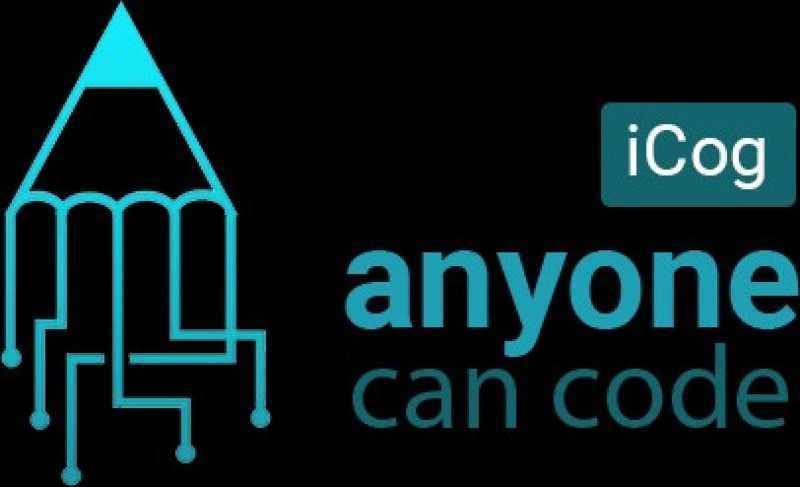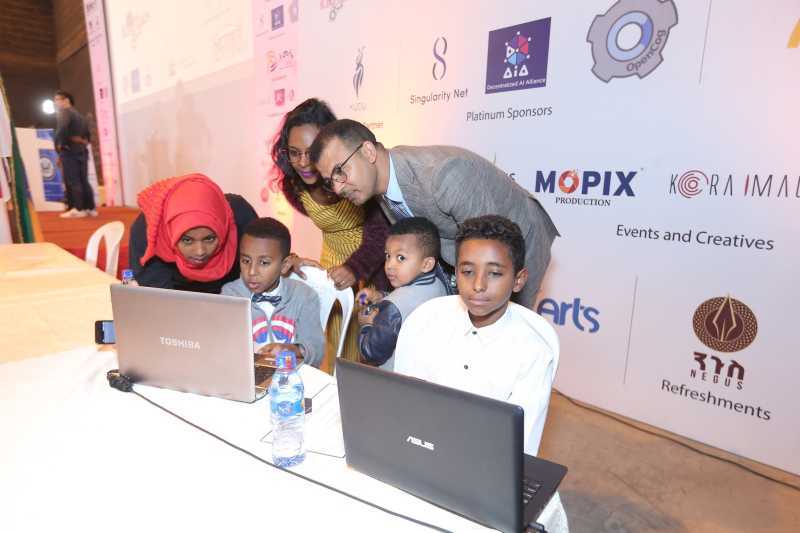Any One Can Code - creating a tech-savvy generation

iCog-ACC seeks to ignite the creativity, excitement, and problem-solving mindset of young talents and provide them with the support and platform they need to grow in a fun and immersive manner.
Technological development in Ethiopia has not seen linear growth throughout its history. Currently, we are witnessing an accelerated use of various software, mobile applications, and increased utilization of the internet. We still severely lag behind places like the USA, Europe, China, and even our neighbor Kenya. Only 360,000 people had Internet access in Ethiopia in 2008, a penetration rate of 0.4%. Although that number has improved over the years, the difference in overall use and development looks insurmountable, but Ethiopia has taken steps to close that gap.

One company that took it upon itself to solve this problem is iCog-ACC, which stands for “iCog-Anyone Can Code.” It was founded by Betelhem Dessie in June of 2016 as a project under iCog Labs to create a tech-savvy generation. It aims to lay a foundation for kids and young adults in emerging technologies at an early age. As of late 2020, iCog-ACC has been a full-fledged company, now branching out into Research and Development and engaging in youth entrepreneurship and tech education. During its establishment, iCog-ACC had a core team of only eight people. Since then, however, the team has grown tremendously, currently employing over 20 staff members.
The programs under iCog-ACC seek to ignite the creativity, excitement, and problem-solving mindset of young talents and provide them with the support and platform they need to grow in a fun and immersive manner. They designed the curriculum and programs with great care befitting the young and curious minds of the youth by considering their level of understanding and engagement.
By partnering with various organizations, iCog-ACC has been organizing free workshops for public school students nationwide in its tech education programs. The program aimed to make STEM education, specifically tech education, nationally accessible and increase the youth’s engagement in tech, despite the financial difficulties they may face. Additionally, iCog ACC designed its entrepreneurship and youth development programs to be inclusive and works towards addressing affordability issues by providing the programs free of charge.

iCog-ACC’s mission is to ‘Create a tech ecosystem that provides kids and young adults the skills needed to be competent in the 21st century.’ It equips children and young adults with the competency needed to interact and thrive in the real world and gets them comfortable and innovative with emerging technologies like coding, robotics, AI, and electronics. Since we live in a digital age, having a basic understanding of the concept of AI is highly important to understand the nuances of the new advancements that are being uncovered in modern times.
Many businesses face numerous problems at their inception. In Ethiopia’s current business climate, startups face many challenges caused by both internal and external factors that impede the establishment of a startup. The laws and policies made by the government are not conducive enough to allow innovative companies to start and grow. Instead of offering help and protection, they become another hurdle the company has to pass. Many startups face these issues, but iCog-ACC was an exception to this even though it did not entirely avoid them. Since the company was formed under iCog Labs as a parent company, not many of these establishment challenges were observed. iCog-ACC had an already existing structure and business model that minimized the trouble of being established as a company. Nonetheless, iCog-ACC had its fair share of challenges.
One of the biggest challenges iCog-ACC is facing right now is staffing issues. There are two reasons attributing to this problem. One is the lack of talent and skills in the employment market. People don’t have the soft skills needed to succeed in the work environment, and qualified applicants with the necessary knowledge can also be hard to come by. The second one is the salary expectation. As of January 2022, the inflation rate in Ethiopia is around 34.5%. Compared to the global average of 4.35%, Ethiopia’s cost of living is accelerating faster than countries. Hence, the salary demands of qualified applicants will grow. This presents a problem for iCog-ACC because it can not match the demands as it is a recently established company.
These challenges are making the company fall victim to the problem it is trying to solve. Higher education institutes need to work more on producing talent that is not just focused on hard skills but also soft skills. The company feels it does need external support to achieve its goal. The government should also provide a simple licensing procedure and detailed information about registering processes for new startups, including regulations that will protect intangible IPs, which is one of the leading challenges startups face.
iCog-ACC is already a multinational company that has expanded beyond Ethiopia. In the next five years, iCog-ACC plans to expand both locally and internationally. It also plans to make a monumental impact on the Ethiopian community and culture in tech education, entrepreneurship, and youth development.

iCog-ACC is an excellent example of how we should run startups. Most startups and founders don’t get the right tools and opportunities to market exposure. Be it for investment, partnership, or even mentorship, most founders don’t know who to approach, how to do it, or even where and when to do it. Since most tech startup founders are skilled only in the technical area, they often neglect key business aspects. This is why having a staff for strictly business development of the startup is highly important. I suggest you, dear reader, take a look at the book ‘The E-Myth Revisited’ by Michael E. Gerber, explaining this concept very well.
You can check out their website, and social media accounts through LinkedIn, Instagram, Facebook, and Twitter.
